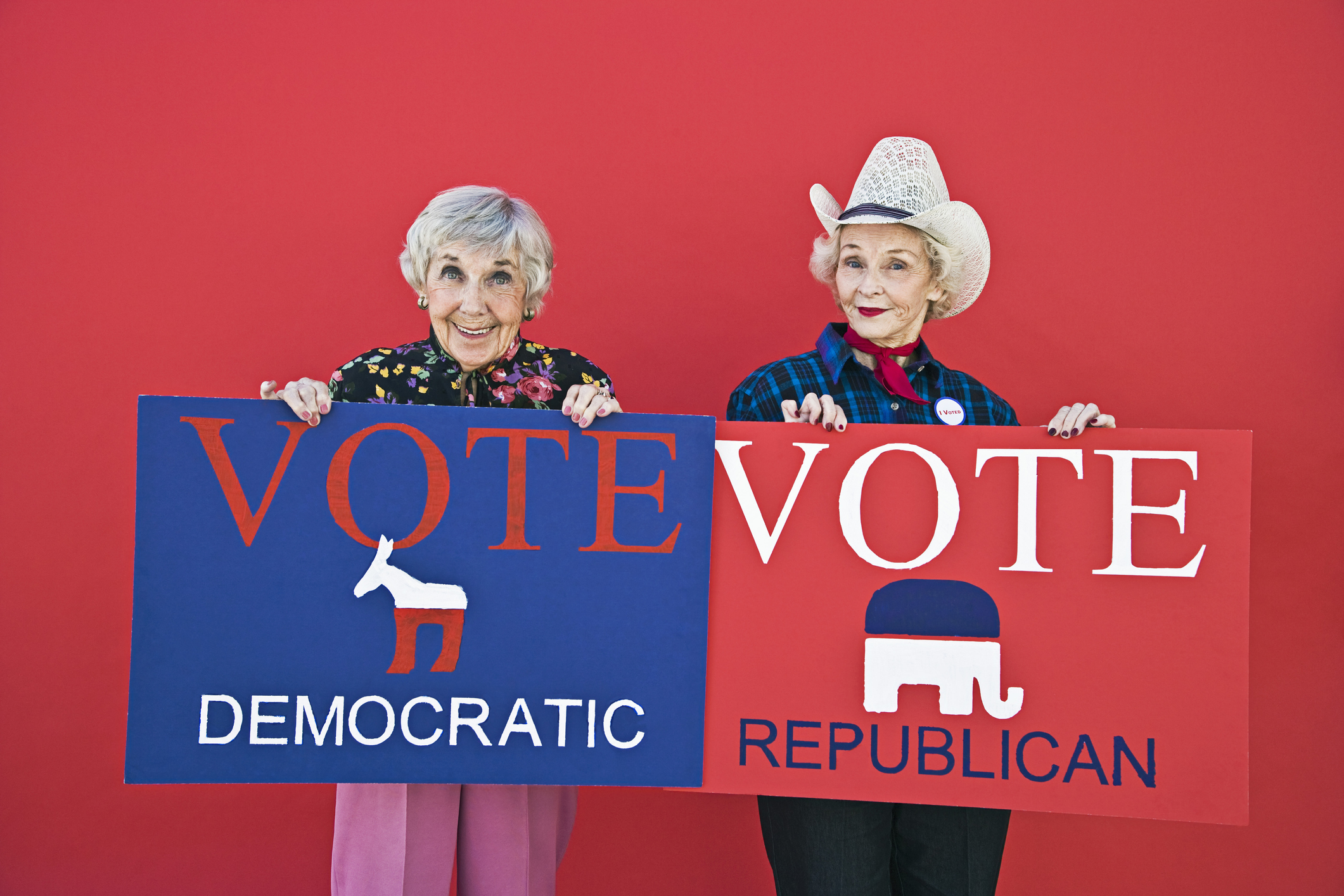Democracy and despotism in a digital age.
Sex Politics

Democrats are busy trying to gin up support for Biden among white women.
With the sudden re-emergence of Christine Blasey Ford, who tried to derail Brett Kavanaugh’s confirmation to the Supreme Court with baseless accusations of sexual assault, the Democrats are clearly wasting no time in trying to get more white women back into their fold. They are looking to make the extremely nuanced case to white women, a pivotal demographic in this year’s election, as in every recent election, that Trump and his friends are all rapists.
White women—married ones especially—have confounded Democrats and the liberal press in their stubborn refusal to vote consistently “in their own interest.” Following Trump’s victory in 2016, early reports that 52 percent of white women had voted for the Orange Beast infuriated Democratic pollsters and reporters, who have spilled ink debunking the figure, derived from some exit polls. It’s true that white women didn’t actually vote for Trump by such a broad margin, but he did win a plurality of the segment—enough, in other words, to help him win. According to Pew, white women gave Donald Trump 53 percent of their votes in his losing effort in 2020.
As much as Democrats signal publicly that black women are the “backbone” of their party (as described by former DNC chair Tom Perez) and the most important demographic in their coalition of the fringes, they know that white women—39 percent of the electorate—are critical to their success in 2024. Consequently, their messaging is tailored to white women above all others.
In the 2022 midterm elections, outcry against the Dobbs ruling built the margin among white women that delivered the Senate to Democrats and mitigated what looked to be an impending disaster in the House. But while Donald Trump appointed the justices who make up the Supreme Court’s conservative majority, he rarely speaks with any passion about the issue. Republicans chose not to defend Dobbs as a state’s rights issue that did not limit access to abortion for women in deep blue states. Blue cities’ ongoing struggles with crime, decaying quality of life, and progressive prosecutors working hard to keep criminals out of jail are not yet a major concern for suburbanites beyond the reach of urban progressive ideologues.
Even apart from abortion, an issue that white, college-educated women remain more passionate about than any other group—while continuing to personally choose to abort their own babies less than they have in the past, and far less frequently than black women—the Democrats’ emphasis on racial equity and trans ideology is tailored to the sort of suburban women who signal their allegiance to liberal orthodoxy by planting “In This House” signs on their front lawns.
Media observers and liberal Democrats have latched onto another issue of import: education. But on this front they may have miscalculated, elevating teachers’ unions over white women, the demographic whose votes they desire above all in 2024. The Left savagely went after the “Karens” of Moms for Liberty, a grassroots organization with over 100,000 members who hail from almost every state. The group was formed in 2021 in opposition to public school Covid policies, as well the institutionalization of trans advocacy as part of the curriculum. Moms for Liberty is part of the larger “parents rights movement” which the Guardian described as “housewife populism,” and is bitterly opposed by the teachers’ unions that are a core constituency of the Democratic Party. Democratic elected officials and activists have condemned Moms for Liberty as a white supremacist hate group, and they clearly feel affronted that women may oppose key parts of the larger progressive agenda.
Like in the two previous presidential elections, Democrats are also highlighting former President Donald Trump’s proclivity for personal insults directed at women like Rosie O’Donnell and E. Jean Carroll, which does not help him with the mature, married women (who tend to vote for the GOP) he must persuade to support him if he is to have any chance for re-election. These women are uncomfortable with the chaos that often surrounds Trump, and he rarely projects the calm and reliability that most appeals to them.
Former Massachusetts GOP chair Jennifer Nassour recently argued in the New York Post that Trump’s harsh, personalized insults and tendency to bully turns off many women, pointing to a Quinnipiac poll that found women overall support Biden over Trump by a 58-36 margin.
Though vice presidential nominees are rarely if ever decisive factors in an election, Trump may benefit substantially from choosing a mature, thoughtful woman to temper his impetuous abrasiveness. Pro-Trump New York Congresswoman Nicole Maliotakis and South Dakota Governor Kristi Noem could fit the bill.
If Trump can soften his perception among women—unlikely as that may be—or temper his image with a female running mate, he may be able to bring home the married, white female voters who were essential to his 2016 victory over Hillary Clinton. Democrats will seek to emphasize Trump’s insensitivity and squeeze every vote out of the Dobbs decision while avoiding scolding women for not supporting them in the past, as when Madeline Albright said in the midst of Hillary’s unsuccessful campaign that there is a “special place in hell for women who don’t help each other.” The mature, white American women who make up the country’s largest voting demographic will undoubtedly be pivotal in choosing our next president.
The American Mind presents a range of perspectives. Views are writers’ own and do not necessarily represent those of The Claremont Institute.
The American Mind is a publication of the Claremont Institute, a non-profit 501(c)(3) organization, dedicated to restoring the principles of the American Founding to their rightful, preeminent authority in our national life. Interested in supporting our work? Gifts to the Claremont Institute are tax-deductible.
In 2010, Claremont Institute Senior Fellow Angelo Codevilla reintroduced the notion of "the ruling class" back into American popular discourse. In 2017, he described contemporary American politics as a "cold civil war." Now he applies the "logic of revolution" to our current political scene.
Claremont Institute Senior Fellow John Marini is one of the few experts on American Government who understood the rise of Trump from the beginning of the 2016 election cycle. Now he looks to the fundamental question that Trump's presidency raises: is the legitimacy of our political system based on the authority of the American people and the American nation-state, or the authority of experts and their technical knowledge in the service of "progress"?




